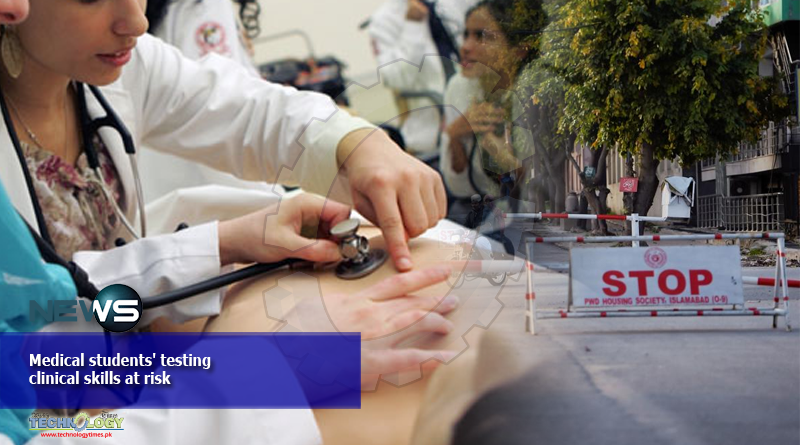Medical student’s testing clinical skills and practical training are at risk due to the pandemic Coronavirus

The medical students’ testing clinical skills and practical training are at risk with educational institutes closed due to the pandemic Corona virus, the training and testing of budding doctors’ clinical skills has become a major challenge for medical universities.
In a webinar, titled as ‘Public Universities’ Response to the Pandemic,’ arranged by Jinnah Sindh Medical University (JSMU), this complicated issue was discussed to seek solution for it .
The Vice Chancellor JSMU, Dr. SM Tariq Rafi stated that the scenario was changing drastically in these unprecedented times and there had been a paradigm shift in teaching and training as well.
Although Higher Education Commission (HEC) has arranged a protocol for general universities, but medical universities were different.
Staff and teachers had been trained to conduct online classes following the guidelines proclaimed by HEC, by holding lectures at the pharmacy and public health institutes, but teaching the students clinical skills online was extremely difficult as practical demonstration is the pre-requisite of this field.
Tariq further said: “Our foremost challenge so far has been conducting examinations,” adding that there were two possible models, the first being setting supplementary examinations online with a viva and the second being to gather 30 to 40 students on campus and arrange examinations while maintaining distance. The latter, he said, was risky.
Pakistan Medical and Dental Council is still debating the modalities of medical and dental admissions for the next year, adding that the current benchmarks for merit were Grade 11 exams and O Levels. “How will we be able to judge a students’ calibre for entry into a medical college without an entry test?” said Tariq.
